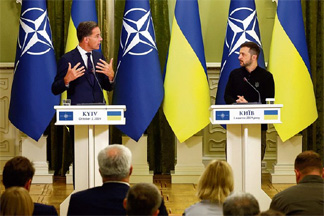Hamas (TIP): Hamas called on the United States on Sept 5 to “exert real pressure” on Israel to reach a Gaza ceasefire agreement as Prime Minister Benjamin Netanyahu said there is no deal in the making.
The two sides have traded blame over stalling talks for a ceasefire and hostage exchange as Netanyahu faces pressure to seal a deal that would free remaining captives, after Israeli authorities announced on Sunday the deaths of six whose bodies were recovered from a Gaza tunnel.
“If the US administration and its President (Joe) Biden really want to reach a ceasefire and complete a prisoner exchange deal, they must abandon their blind bias towards the Zionist occupation,” Hamas’s Qatar-based lead negotiator Khalil al-Hayya said, calling on the US to “exert real pressure on Netanyahu and his government”.
But Netanyahu told US talk show Fox & Friends: “There is not a deal in the making… Unfortunately, it’s not close but we will do everything we can to get them to the point where they do make a deal and at the same time we prevent Iran from resupplying Gaza as this great terror enclave.” Netanyahu insists that Israel must retain control over the Philadelphi Corridor along the Egypt-Gaza border to prevent weapons smuggling to Hamas, whose October 7 attack on Israel started the war. Hamas is demanding complete Israeli withdrawal from the area and on Thursday said Netanyahu’s position “aims to thwart reaching an agreement”.
The Palestinian militant group says a new deal is unnecessary because they agreed months ago to a truce outlined by Biden.
“We do not need new proposals,” Hamas said in a statement.
“We warn against falling into the trap of Netanyahu.. who uses negotiations to prolong the aggression against our people,” the group said. US National Security Council spokesman John Kirby nonetheless said that Washington believes a ceasefire deal is 90 percent agreed. But he added that “nothing is negotiated until everything is negotiated, and the things that are still in play right now are very, very detailed… issues, and that’s when things get difficult.”
Louise Wateridge, spokeswoman for the UN agency for Palestinian refugees (UNRWA), warned, however, that “in the southern area it’s going to be more difficult to reach a lot of the population”, because not all children are in the designated humanitarian zones — where Israel has agreed not to strike. (AFP)
© The Indian Panorama




Be the first to comment